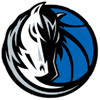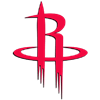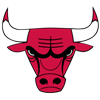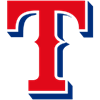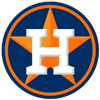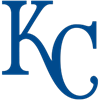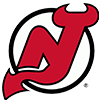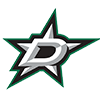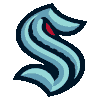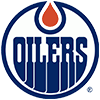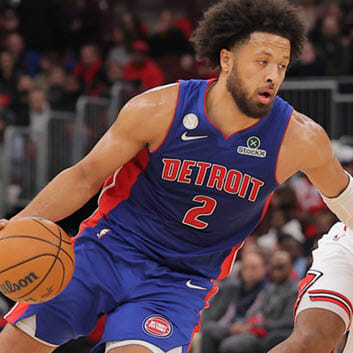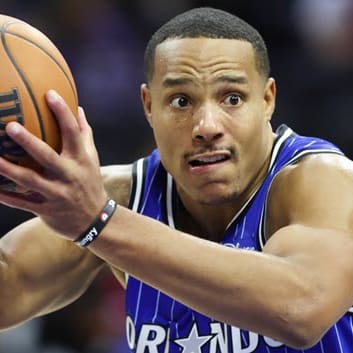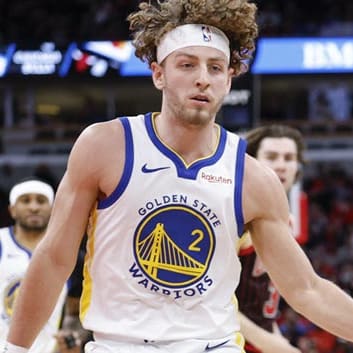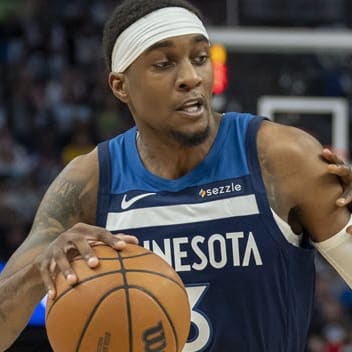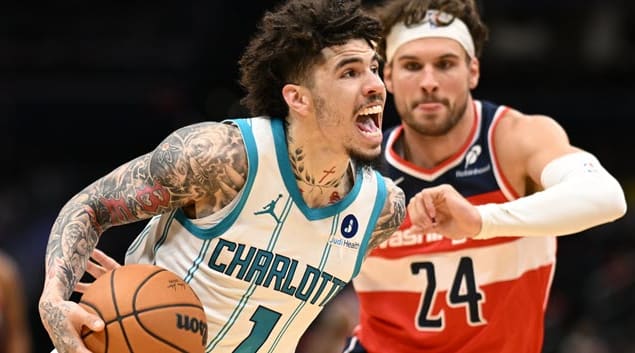NBA Summer League serves as a pivotal stage for rookies and young players to showcase their potential before the preseason and regular season. This year's top picks delivered a mix of promise and areas for improvement. In this article, I'll delve into the performances of the top 14 picks from the 2024 NBA Draft, analyzing their strengths, weaknesses, and potential fantasy value.
No. 1: Zaccharie Risacher, Hawks 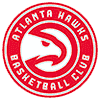
Stats (2 games): 14.5 points and 2.0 threes on 39/25/43 shooting, 5.0 rebounds, 2.0 assists, 1.0 blocks and 1.0 turnovers in 29.5 minutes
Limited to two appearances due to a bruised right quad, Risacher ultimately showed us what the scouting community at large was anticipating. The 19-year-old wing is a streaky shooter who doesn't offer much in terms of shot creation but can run in transition, finish with either hand and make nice passing reads.
If you saw Risacher play without knowing anything about him, you might not know which hand is his dominant until he takes a jumper. He has excellent touch with his off-hand (left), which will help him immensely when he gets downhill. I expect cuts, curls and transition runs to be a significant part of his game. Those actions will be crucial for Risacher since he's raw as a ballhandler and self-creator. But he won't just curl into the lane and get tunnel vision; he knows where his teammates are and makes smart, crisp passes. On defense, what I saw was a mixed bag. He's lengthy and has good sense of how and when to contest shots, but he lacks strength and isn't an explosive lateral athlete. Risacher doesn't get especially low when defending or when he's trying to playmake on offense, which affects his ability to cut off offensive players and shift the defender in front of him.
In terms of fantasy, I'm not going out of my way to select him. Don't get hypnotized by his No. 1 pick status. He's raw and playing on a team with a fairly established wing rotation. Neither minutes nor shots will be easy to come by, and I don't think he gets spoon fed usage.
No. 2: Alex Sarr, Wizards 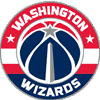
Stats (4 games): 5.5 points and 0.5 threes on 19/12/50 shooting, 7.8 rebounds, 2.2 assists, 2.5 blocks, 0.8 steals and 2.3 turnovers in 29.6 minutes
I'm afraid you read that correctly; Sarr went 9-for-47 shooting as a 7-footer. At the same time, when I watched him make 19 percent of his shots, I understood why he was in the discussion for the No. 1 pick. There are just not that many 7-footers that move with his fluidity and have a jumpshot that looks mechanically sound, and that's before considering his defensive upside.
My opinion on his offensive game is that he should be a center but wants to play power forward. And I mean a blend of old school and new school power forward. He wants to run in transition; he wants to take threes; he wants to take mid-range jumpers; he wants to work at the elbow. He often has his mind made up before entering the paint, and he doesn't make any effort to bully into the restricted area. The free-reign version of Sarr we saw in Summer League was a (unsuccessful) mix of Kevin Garnett, Giannis Antetokounmpo and Jaren Jackson Jr. I will note two offensive positives quickly: He has passing vision and was relatively active on the offensive glass.
Defensively, there was plenty to like. I understand why he got some Evan Mobley defensive comparisons. He can swat shots at the rim, and players on the wing appear uncomfortable when he's switched onto them. I think Sarr can be successful at power forward or center defensively and should be valuable in late-shot-clock switches.
Fantasy-wise, I'm mostly intrigued by the blocks and steals potential but probably will not go above Average Draft Position to get him. Plus, Washington is horrible, which should afford the 19-year-old plenty of minutes. Hopefully, preseason gives us some more clarity on his role.
No. 3: Reed Sheppard, Rockets 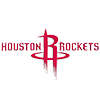
Stats (4 games): 20.0 points and 1.3 threes on 50/28/75 shooting, 5.3 assists, 4.8 rebounds, 2.8 steals, 1.3 blocks and 4.8 turnovers in 33.1 minutes
Rewatching Sheppard's plays from Summer League, I found myself forgetting to write down notes because he made his job look so simple. Houston has to feel like they stole him at No. 3, and I think it's going to be difficult to keep him off the floor despite a fairly deep depth chart.
Despite Sheppard being a historically great three-point shooter in college, he used it to just supplement his game in Summer League. He was much more active from the mid-range, firing away when discarding his defender or freezing the defense in a pick-and-roll. Reminiscent of TJ McConnell, Sheppard has excellent feel when it comes to the 10-15 foot range, staying away from shot-blockers. He doesn't have a deep bag of dribble moves, but he constantly gets defenders off balance or nailed to the ground with simple hesitations, crossovers and head-fakes. At one point, he got two defenders to both leap into the air on a pump fake. Sheppard's isn't a jaw-dropping passer, but just knows where the open man is and manages to find him.
On defense, he will, and did, get bullied. He'll have trouble against bigger guards like Jrue Holiday or Anthony Edwards but should be able to be effective against more traditionally-sized ones. However, he has active hands. He'll jump in passing lanes, poke the ball away from someone with a loose handle and smack the ball down when someone is going for a gather towards the rim. Sheppard has some blocks in college and Summer League that reminded me a bit of what Derrick White is able to do.
In keeper/dynasty formats, I think Sheppard is worthy of being taken as the first rookie of the board. I'm sure he'll also be a popular flyer in redraft formats. My main concern is Houston's depth. Sheppard will be fighting for minutes with Fred VanVleet, Amen Thompson, Jalen Green and Cam Whitmore. It's a lot of mouths to feed, especially young guys. Preseason will be huge for fantasy managers to evaluate Sheppard's potential role.
No. 4: Stephon Castle, Spurs 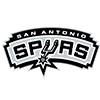
Stats (3 games): 17.3 points and 1.3 threes on 37/25/67 shooting, 5.7 rebounds, 4.0 assists, 1.3 steals and 2.3 turnovers in 25.5 minutes.
Castle played two games in the California Classic and one game in Vegas before sitting out with a sprained wrist. He was aggressive offensively and played with physicality but didn't answer any questions about his shooting.
Castle, at 6-foot-6, 210 pounds, played with physicality and footwork beyond his years. He gets low and is constantly shifting, maneuvering and bumping his defender to work his way inside. The UConn product isn't afraid to launch himself into shot-blockers and try to force the official to make a call. Finishing through contact is a highlight of his game, and it's necessary due to his shaky shooting. Passing comes natural to him, and he was able to find open teammates after drawing help defense. On defense, he wasn't a massive disruptor, but does all the right things to contain his defender and play help D.
Castle isn't someone I'm targeting in fantasy this year. I worry about his role in the offense and how many minutes he'll get. He's competing with Chris Paul, Tre Jones, Devin Vassell, Keldon Johnson and, to some extent, Harrison Barnes and Jeremy Sochan. And his lack of floor spacing complicates an already-squeezed court for Victor Wembanyama.
No. 5: Ron Holland, Pistons 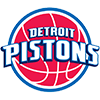
Stats (4 games): 18.8 points and 1.0 threes on 41/24/65 shooting, 6.5 rebounds, 2.3 assists, 1.5 steals and 1.0 blocks with 1.0 turnovers in 27.4 minutes.
Holland was exactly as advertised in Summer League – an explosive athlete who attacks the top of the rim on offense and is a pest on defense. But the negatives were also there. He struggled shooting and didn't showcase much ballhandling ability.
Holland, at 6-foot-7, 197 pounds, is the book definition of a slasher; the track star turned basketball player. He flies in transition, makes cuts and makes the best use of his abilities as a sprinter and jumper. And good luck getting around him if he's your defender. But these types of players aren't exactly rare. College and overseas leagues are riddled with them. The skill floor in the NBA is just so high that in the vast, vast majority of cases, a jumpshot has to develop. Holland will need to prove he's not just Hamidou Diallo.
I will say, I don't think his shot mechanics appear broken. It seems like it should be fixable, and the Pistons hired shot doctor Fred Vinson to work with the entire roster. I just don't really expect a leap as a rookie. Holland also doesn't have a bag. He has the simple stuff but ultimately relies on trying to blow past defenders with speed. Defenders aren't taken off guard by a nice combination of moves like jabs, spins, hesitations and crossovers.
In terms of real life and fantasy, Holland is my least favorite prospect selected in the Top 5. I think too much has to go right, not to mention the redundancy with Ausar Thompson, who I like more. Detroit will simply just have to put shooters on the court around Cade Cunningham and Jalen Duren to sniff competency.
No. 6: Tidjane Salaun, Hornets 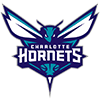
Stats (3 games): 9.0 points and 0.3 threes on 42/10/50 shooting, 7.0 rebounds, 0.3 assists and 0.7 turnovers in 19.4 minutes.
Salaun is a raw prospect who was a surprising pick at No. 6, and it's possible he won't be an every-game rotation player for the Hornets. But after watching him play in Summer League, I see the vision.
The French forward is 6-foot-9, 203 pounds. It's a testament to his athleticism that somehow he looks both heavier than 203 pounds to me, but is also twitchy and explosive. I like that he bends his knees well and can get low while driving with the ball or playing defense. In some ways, he moves like a 14-year-old who just went through a growth spurt, which isn't necessarily a negative for someone who isn't even 19 years old yet.
Salaun shot poorly from three but was passable in his three professional years overseas, and notably improved his free-throw percentage to 75% last season. He has a bit of a windup, bringing the ball too low before firing, but I don't think it'll take significant labor to refine the motion. The rest of his offense game is also relatively undeveloped. He's not much of a passer or ballhandler, though he can grab and go in transition. His defense is inconsistent, and he wasn't able to rack up a steal or block in Summer League, but all the tools are there.
In redraft fantasy leagues, I think Salaun can be safely ignored. But, like a lot of other people, the flashes he's shown have me hopeful he can round out his game. I wouldn't mind taking a chance on him in a dynasty league if I'm in a rebuilding stage.
No. 7: Donovan Clingan, Trail Blazers 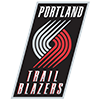
Stats (4 games): 9.0 points and 0.8 threes on 36/23/50 shooting, 12.3 rebounds, 4.3 blocks, 0.8 steals and 2.0 assists with 2.8 turnovers in 25.4 minutes
Clingan explored shooting threes in Summer League, which hurt his offensive performance. But he was a monster on defense, showing fans why he was in the discussion to be selected sooner in the draft.
Clingan is a legit 7-foot-2, and it seems to surprise offensive players. Clingan blocked multiple jump shots that shocked me when I saw where he started from when the shooter began their motion. That's, of course, in addition to being a brick wall rim protector. It won't surprise me if he's near the top of the block rate leaderboard as a rookie.
Offensively, he was experimenting with threes. That's fine for Summer League, but he has a push shot that's pretty mechanical. He didn't even shoot 60 percent from the charity stripe in college, so I doubt he'll become a threat from deep at any point in his career. Putting that aside, I would still like to see him finish better through contact. But he was unstoppable if a smaller player got switched onto him. Clingan has the basic big man spins and drop steps he needs to get free points in those situations. The center also showed off some passing upside, but I'm not sure how much he'll actually be asked to do that on this Portland roster.
Speaking of this Portland roster, I hate Clingan's situation for fantasy. He's behind Deandre Ayton and will be fighting for minutes with Rob Williams. If I was Portland, I'd do everything I could to move on from Ayton, Anfernee Simons and Jerami Grant to build around Clingan, Scoot Henderson and Shaedon Sharpe. I digress – despite with the center logjam, it's hard for me to imagine Clingan getting fewer than 20 minutes per night, even if it means playing Ayton and Clingan together for a handful of minutes. The Blazers are bad, and they should feature their young up-and-comers. With the blocks upside alone, I don't hate taking a chance on Clingan in fantasy, but it will probably take a major injury or trade for the full potential to be realized.
No. 8: Rob Dillingham, Timberwolves 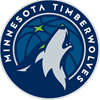
Stats (5 games): 13.6 points and 1.6 threes on 36/31/54 shooting, 7.6 assists, 4.2 rebounds, 1.0 steals, 0.4 blocks and 3.4 turnovers in 29.8 minutes
Dillingham's efficiency was poor in Summer League, but he showed off the speed, tough-shot making ability and passing that should have Wolves fans intrigued.
The easiest way to describe Dillingham is that he was cloned using Bones Hyland's DNA. The experiment appears to be a success, though Dillingham is somehow both shorter and lighter than Hyland, standing at just 6-foot-1, 164 pounds. He's almost guaranteed to be the shortest player on the court when he's out there. But chances are, he's also going to be the quickest. He was lightning fast in Summer League despite a lingering ankle injury, and that will be his go-to. I was impressed by Dillingham's passing, and I think he should pass more rather than take highly contested looks. But to some extent, you draft a guy like Dillingham to hit those looks late in the shot clock. If he has a downfall, it will probably be his defense. His quickness saves him often, but he gambles a lot, gets lost and uses his hands too much.
Dillingham projects to be a sixth-man type for Minnesota, which they need. He and Naz Reid will create a second unit with a ton of energy and scoring punch, and it should be a lot of fun. It's possible Dillingham, in the future, can step into the starting point guard spot when it's eventually vacated by the aging Mike Conley.
No. 9: Zach Edey, Grizzlies 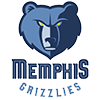
Stats (2 games): 10.0 points on 67 FG%, 9.0 rebounds, 2.5 blocks and 0.5 assists with 1.5 turnovers in 21.0 minutes
An ankle sprain limited Edey to just 42 total minutes in Summer League, but he showed off everything optimists were hoping for.
I'm not breaking ground here, but the first thing you notice about Edey is that he's just massive. The Purdue product is 7-foot-4, 299 pounds and actually looks like he has the frame to put more weight on. If Memphis can get him to add size and maintain a good base of lower body strength and athleticism, Edey could become even more of a dominant low-post presence.
In his short time, Edey rebounded and blocked shots at an elite level and scored efficiently. I think he makes a lot of sense next to Jaren Jackson Jr. on both offense and defense. I won't be surprised if Edey is a Day 1 starter and sees minutes in the mid-20s. He's the perfect guy to set hard screens for Ja Morant and roll to the rim, and he'll create extra possessions with his offensive rebounding while deleting opponent possessions with his rim protection.
Given what I anticipate as his role, I won't be surprised if Edey is the most valuable rookie in fantasy this season. He has double-double with two-blocks upside even in pseudo-starter minutes. I'm excited to see him play in preseason.
No. 10: Cody Williams, Jazz 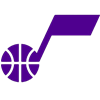
Stats (7 games): 10.7 points and 1.0 threes on 45/26/91 shooting, 3.0 rebounds, 1.7 assists, 0.7 blocks and 0.4 steals with 1.4 turnovers in 28.3 minutes
Williams got as much Summer League run as nearly anyone, but he didn't do a lot with it. How concerned should we be?
What stuck out to me the most about Williams was his lack of athleticism. He's 6-foot-7 and only 178 pounds but not quick, explosive, twitchy or any other adjective you want to use. It feels like he's stuck in a lower gear than other guys his age and size. I didn't see a moment where I felt like he gave it his all changing directions, sprinting or jumping. Not to mention, his jumper is also slow, he doesn't showcase a dribble package, and he didn't show passing vision.
I have to admit, I just don't get it. What optimists point to is his feel for the game. At some point, I just want a guy to stand out for any reason. Williams didn't. His role in the rotation this season is murky regardless, and I won't be taking a risk on him in fantasy.
No. 11: Matas Buzelis, Bulls 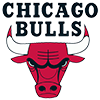
Stats (5 games): 16.6 points and 1.2 threes on 34/21/74 shooting, 4.2 rebounds, 2.0 blocks, 2.0 steals, 0.8 assists with 2.4 turnovers in 29.7 minutes
It was clear in Summer League that Buzelis' shooting is still a work in progress, but he was constantly making highlight plays and often looked like the best athlete on the court.
Buzelis slipping to No. 11 was a surprise, as he was often mocked in the Top 5. I think teams got scared off by his poor shooting in the G League Ignite – a team so bad the NBA just quietly dissolved it. Well, Buzelis didn't waste any time racking up highlight plays in Summer League. He's dunking on people, crossing people over, euro-step bumping guys out of the way. Buzelis is fast, twitchy and can jump, and he plays with the aggression that every athlete of his caliber should. And while his efficiency wasn't great, he got hacked plenty, averaging 5.4 free throw attempts per game.
NBA teams will dare him to shoot, and we'll see how he fares athletically against the real competition. Aside from that, he needs to do a better job of finding open teammates when he creates advantages. He doesn't necessarily play with tunnel vision, but I'm not sure if he has good awareness of where his teammates are. Defensively, he can certainly make plays with his length and athleticism, but he's not a great one-on-one container yet.
I hope the Bulls can find a way to send Zach LaVine elsewhere to open up more minutes for Buzelis and other young guys. As it stands, Buzelis should be a staple of the second unit, and a relatively weak second unit at that. There could be a lot of opportunity for him to be the go-to option in those situations. I think he'll have his moments in fantasy this season.
Picks No. 12 (Nikola Topic, OKC) and No. 13 (Devin Carter, SAC) did not play in Summer League due to injuries. Topic has a torn ACL and is expected to miss the whole campaign, while Carter underwent shoulder surgery and hopes to return around the New Year.
No. 14: Bub Carrington, Wizards 
Stats (5 games): 15.8 points and 2.8 threes on 33/36/86 shooting, 7.4 rebounds, 5.2 assists, 1.0 steals, 0.6 blocks and 2.4 turnovers in 32.6 minutes
Carrington outshined Alex Sarr on offense, though Carrington's game is perfectly crafted for Summer League. He's a classic bucket-getting combo guard and showed confidence and comfort despite not even being 19 years old yet.
The Pittsburgh product is 6-foot-4 but has a 6-foot-8 wingspan and gets excellent elevation on his jumper, allowing him to shoot over almost anyone. He shot well from three in Summer League but was more of a mid-range assassin in college. Carrington is a smooth but shifty athlete, and it seems to catch defenders off guard. At times, it looks like he's running a drill at 80 percent speed but still manages to shake a defender for a wide open look. Like in college, Carrington also rebounded well and posted a nice assist-to-turnover ratio. Defense isn't a strength of his, but he made some nice plays on that side of the ball.
I am intrigued when it comes to fantasy, especially if Washington can find a way to deal (or even buy out) Malcolm Brogdon. I still don't think Carrington would start, but based on the depth chart, he could end up with almost free reign to run the second unit.





